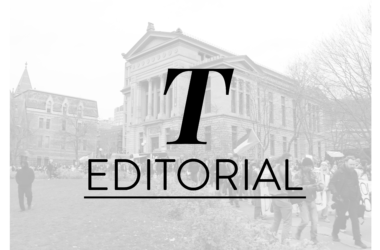On Sept. 12, McGill’s Senate passed a motion endorsing McGill’s divestment from corporations involved in the production, transportation, or sale of fossil fuels. The Senate’s decision puts pressure on the Board of Governors (BoG), which ultimately has the power to divest, but has already refused to do so twice before. The Senate, a governing body primarily concerned with academic affairs, exceeded its jurisdiction to stand in solidarity with students. The breach speaks volumes: Governing organizations should not have to overstep their mandates for student voices to be heard.
This development is the result of years of grassroots activism on campus, and the Senate is the latest and most powerful in a series of campus bodies to support divestment, including the McGill Association of University Teachers’ (MAUT), the Faculty of Arts, and the Student’s Society of McGill University (SSMU). Fossil fuel reserves must be managed more conservatively to prevent further irreversible climate change, as the exploitation of fossil fuels has serious implications for widespread environmental pollution, ecosystem degradation, water contamination, and greenhouse gas emissions. Given the plethora of well-documented environmental benefits and growing campus-wide support, The McGill Tribune’s own endorsement is overdue. That Senate, McGill’s second-highest governing body, has chosen to reach beyond its mandate in support of divestment, is even further proof of a growing campus consensus, one which the BoG willfully continues to ignore.
Whereas the Senate is only mandated to govern academic policies such as curricula development, the BoG—McGill’s highest governing body—manages the University’s corporate interests and affairs. The BoG, however, has little student representation: Only two of its 25 voting members are student representatives. The Committee to Advise on Matters of Social Responsibility (CAMSR) advises the Board on socially responsible investing, and has recommended that McGill not divest twice before. CAMSR’s terms of reference currently do not prevent them from endorsing investments based on political affiliations. Nine of CAMSR’s 10 members sit on the BoG, and there is only one student representative. This represents a conflict of interest, as both CAMSR’s composition and the manner in which its members are selected mean that the committee is inevitably affiliated with BoG politics.
Even CAMSR’s terms of reference themselves are open to sporadic change at the whims of the BoG. In March 2018, the Board attempted to cripple CAMSR’s ability to advise on socially responsible spending by proposing that it be prohibited from endorsing investments based on social causes.
Additionally, CAMSR only holds closed meetings. With a lack of student representation on the committee itself, and no easy way for students to voice their concerns and opinions about the Committee’s suggestions, CAMSR cannot take into account the desires of the entire McGill community. Strict limitations on press access to its sessions limits measures for holding the committee accountable.
The Senate is supposed to be apolitical, but so is CAMSR. Faculty endorsements have been insufficient in convincing the BoG that divestment is in the university’s interest. The BoG’s rejections of divestment prove that it does not represent community demands. The BoG solely represents McGill’s corporate demands, not the demands of the community—that needs to change.
McGill has expressed its commitment to achieving carbon-neutrality by 2040. If the university truly wants to reach this goal, then divestment is a crucial step. The move to divest is not merely an environmental issue, but a proof of institutional transparency. CAMSR needs to open its doors, and if the Committee is to act as the BoG’s social conscience, it also needs to act in accordance with student and scientific consensus.
In the meantime, the Senate’s decision should be celebrated as the result of the hard work of student-led activism. Students are largely responsible for the success of the divestment movement on campus, and it is imperative that they continue mobilizing to hold their institutions responsible.





